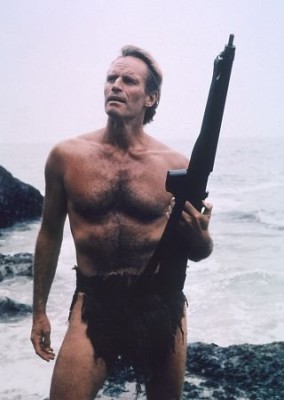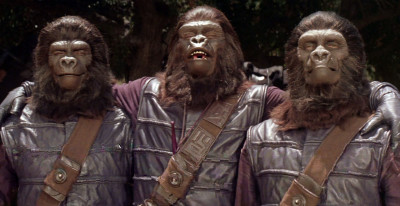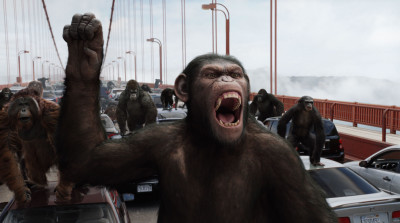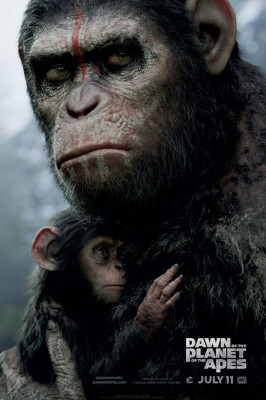At 46 years old, The Planet of the Apes franchise is the oldest film series with new movies still coming out. Apes has been rebooted twice and spans seven films with an eighth, Dawn of the Planet of the Apes, currently in theaters. Incredibly, in terms of story the current series of films ties in with the original.

Planet of the Apes started in 1968 with an anti-hero fighting for mankind and now that plot has come full circle with another anti-hero in the new films not fighting for mankind but apekind. In the first film Charlton Heston plays George Taylor, an astronaut on a mission to explore deep space who accidentally crashes on a far-off planet thousands of years in his future. On this strange planet Taylor finds that the people there are like the animals and it’s the apes that are the top species on the planet and hold dominion over the men.
Taylor, who lost everything in the crash including his ship, is found by the apes and is thought to be an abomination, a thinking man that can speak. In Ape City Taylor, who’s from, no kidding, Fort Wayne, Indiana, must defend himself on trial for being a freak where if found guilty the punishment is a lobotomy.
In all this Taylor isn’t the hero. Back home he was a guy who didn’t particularity fit in with anyone or like the human race. In many ways he was using this millennia long journey in a rocketship to escape the worst of humanity. But what he finds on this world of apes is much worse than he left. He left a planet where people starved and mankind made war with mankind. What Taylor found in the stars was a race of man that had devolved to the point where they were treated like vermin, something to be trapped and shot for eating crops.

He’s the last guy you’d expect/want defending mankind’s legacy but it’s exactly that task that falls on Taylor.
Four sequels would follow this original, with the series slowly devolving into more action-adventure fare than focusing on one man defending the legacy of mankind. There was also a series reboot by Tim Burton in 2001 that didn’t find much traction but another reboot a decade later titled Rise of the Planet of the Apes would.
In that movie the character of Caesar is an anti-hero too, just not a human one.

Here, Caesar, a chimpanzee played by motion capture specialist Andy Serkis, is given a treatment in utero that makes him as smart as any man. Raised by his creator Will Rodman (James Franco) in secret, as Caesar grows to adulthood and gains in intelligence he realizes that the treatment apes receive at the hands of man is unacceptable and leads an simian revolt to escape from our cities and live in the wilds of the countryside.

Which doesn’t sound too anti-hero to me, except that Caesar is leading the revolt against all mankind, good and bad, and the drug that causes the apes to gain in intelligence also has the by product of killing most people who are exposed to it.
It would be easy to twist the story of Rise of the Planet of the Apes around so that Caesar comes off as the villain, not the hero, since he’s the leader in the start of the destruction of mankind. And that’s why I think that movie’s so interesting. Take a step back from Rise and you realize that the movie marks the holocaust of most of mankind and us losing our position as top species on the planet to a bunch of dirty apes. It’s a horrifying idea, yet by the end of that movie we’re rooting for Caesar and his posse of apes to escape San Francisco to the safety of the nearby forest.
The newest Dawn of the Planet of the Apes takes place a decade after Rise when mankind is all but ruined and must seek help from the apes. Which, oddly enough was also the plot to the last of the first apes films Battle for the Planet of the Apes (1973).
